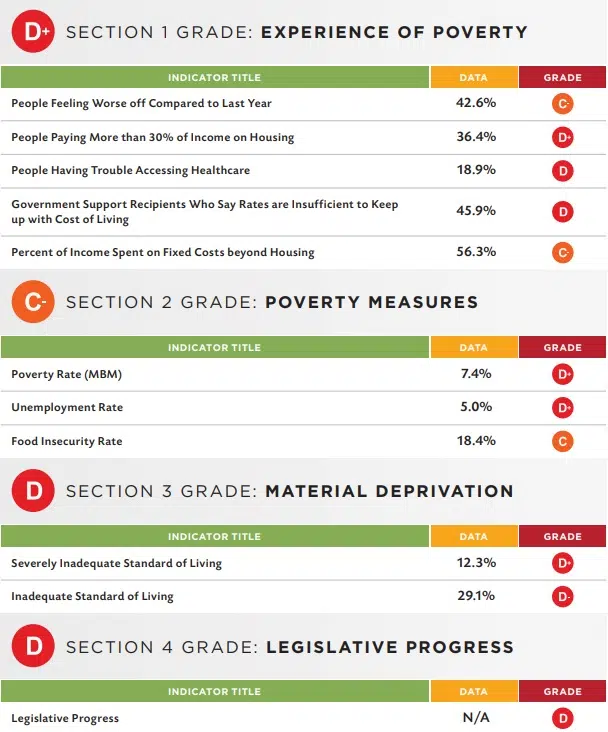Canada is not doing well when it comes to poverty reduction efforts, according to the first poverty report card from Food Banks Canada.
The federal and provincial governments were graded on 13 indicators spread across four different categories.
They include experiences of poverty, measurements of poverty, a standard of living, and legislative progress.
“This helps policymakers and advocates compare how governments are doing, see what policies are working well across the country, and have evidence at hand to advocate for effective policies that tackle poverty,” said the report.
The federal government and most provincial governments received a D grade for their efforts.

A breakdown of the federal government’s D+ score in the first poverty report released by Food Banks Canada. Image: Food Banks Canada
Canada and British Columbia received a D+ grade, Saskatchewan and Alberta received a D grade, while Newfoundland and Labrador, New Brunswick and Ontario received a D- grade.
Nova Scotia had the lowest grade with an F while Quebec had the highest with a B-. Prince Edward Island and Manitoba each received a C-.
According to the report, 43 per cent of Canadians said they feel financially worse off than they did in 2022, while 36 per cent are paying more than 30 per cent of their income on housing.
One in five said they could not afford to cover an unexpected cost of $500 while nearly half think social security benefits need to be expanded.
The report points to several factors that have exacerbated the issue of poverty in Canada, including the COVID-19 pandemic, Russia’s invasion of Ukraine, the affordable housing crisis, and inflation.
Food Banks Canada also provided a series of policy recommendations for each level of government “which act as a roadmap to steer the country toward a future where poverty and food insecurity are a thing of the past.”
You can view the full report on Food Banks Canada’s website.





